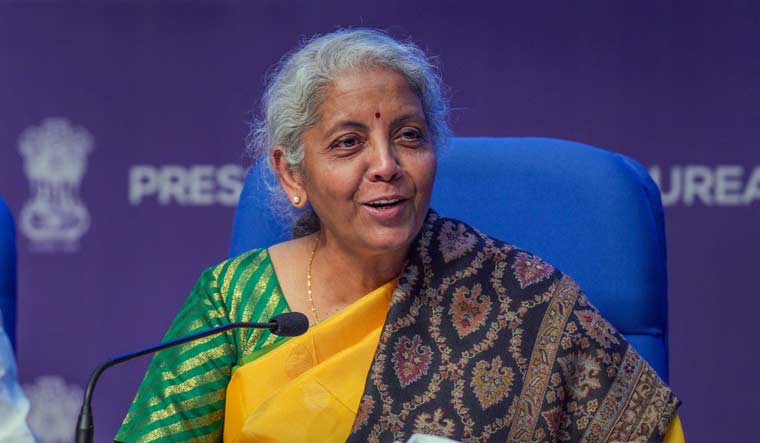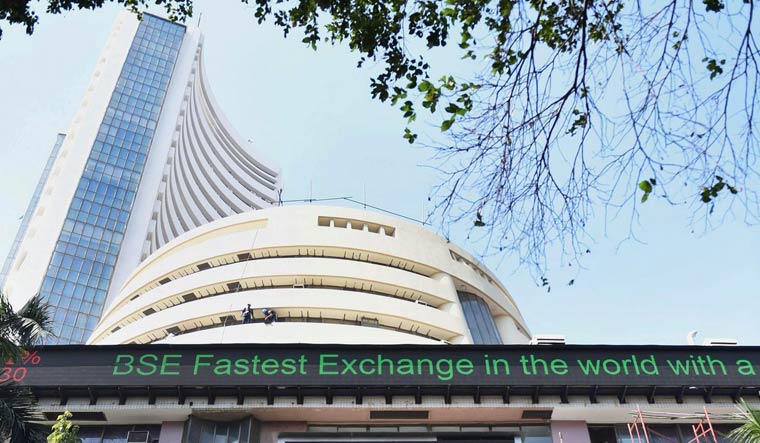
Finance Minister Nirmala Sitharaman, on Wednesday, launched a invoice within the Lok Sabha to boost the age restrict for the president and members of GST appellate tribunals.
The Central Items and Companies Tax (Second Modification) Invoice, 2023, seeks to cap the age for president and members of the GST appellate tribunals (GSTAT) at 70 years and 67 years, respectively, increased than 67 years and 65 years specified earlier.
An advocate with 10 years of ‘substantial expertise’ in litigation in issues regarding oblique taxes within the Appellate Tribunal, could be eligible to be appointed as a judicial member of the GSTAT.
As per the modification, the president and the judicial and technical members of the GSTAT shall maintain workplace for 4 years, or till he attains the age of 70 years and 67 years, respectively, whichever is earlier.
The principles notified by the federal government earlier had fastened the age restrict for the president and members of GSTAT at 67 years and 65 years, respectively.
The GST Council, chaired by Sitharaman and comprising finance ministers of all states and UTs, had in October accepted the change within the age standards.
The president and members of the GSTAT could be eligible for re-appointment for a interval of two years topic to the age restrict of 70 and 67, respectively, as per the amended invoice.
Parliament had in March cleared amendments within the GST Act, enabling the creation of the Central Items and Companies Tax Appellate Tribunals. Following that, GSTAT was notified on July 31.
“Through the means of operationalisation of the mentioned Tribunal, it was noticed that sure provisions of the Central Items and Companies Tax Act, 2017, should be aligned with the Tribunal Reforms Act, 2021.
“Accordingly, the provisions of the Central Items and Companies Tax Act, 2017 are being aligned with the Tribunal Reforms Act, 2021, to provoke the executive course of for operationalisation of the Items and Companies Tax Appellate Tribunals on the earliest,” mentioned the assertion of objects and causes of the invoice launched by Sitharaman within the Lok Sabha on Wednesday.
An individual who has not accomplished the age of fifty years shall not be eligible for appointment because the president or member, the invoice mentioned.
A finance ministry official had final week mentioned that operationalising GSTATs would take about 4-5 months and efforts are additionally being made to determine infrastructure, following which the choice means of members will begin.
In September, the finance ministry notified 31 benches of the GST Appellate Tribunal (GSTAT), which will likely be arrange in 28 states and eight UTs.
Organising of state-level benches of GSTAT would assist companies by the use of quicker dispute decision.
Presently, taxpayers aggrieved with the ruling of tax authorities are required to maneuver to the respective Excessive Courts. The decision course of takes longer time as Excessive Courts are already burdened with a backlog of circumstances and shouldn’t have a specialised bench to cope with GST circumstances.
As per the notification, Gujarat and UTs—Dadra and Nagar Haveli, and Daman and Diu—could have two benches of the GSTAT; Goa and Maharashtra collectively could have three benches.
Karnataka and Rajasthan could have two benches every, whereas Uttar Pradesh could have three benches.
West Bengal, Sikkim, Andaman and Nicobar Islands; Tamil Nadu and Puducherry will collectively have two GSTAT benches every, whereas Kerala and Lakshadweep could have one bench every.
The seven northeastern states—Arunachal Pradesh, Assam, Manipur, Meghalaya, Mizoram, Nagaland and Tripura—could have one bench.
All different states could have one bench of the GSTAT.



